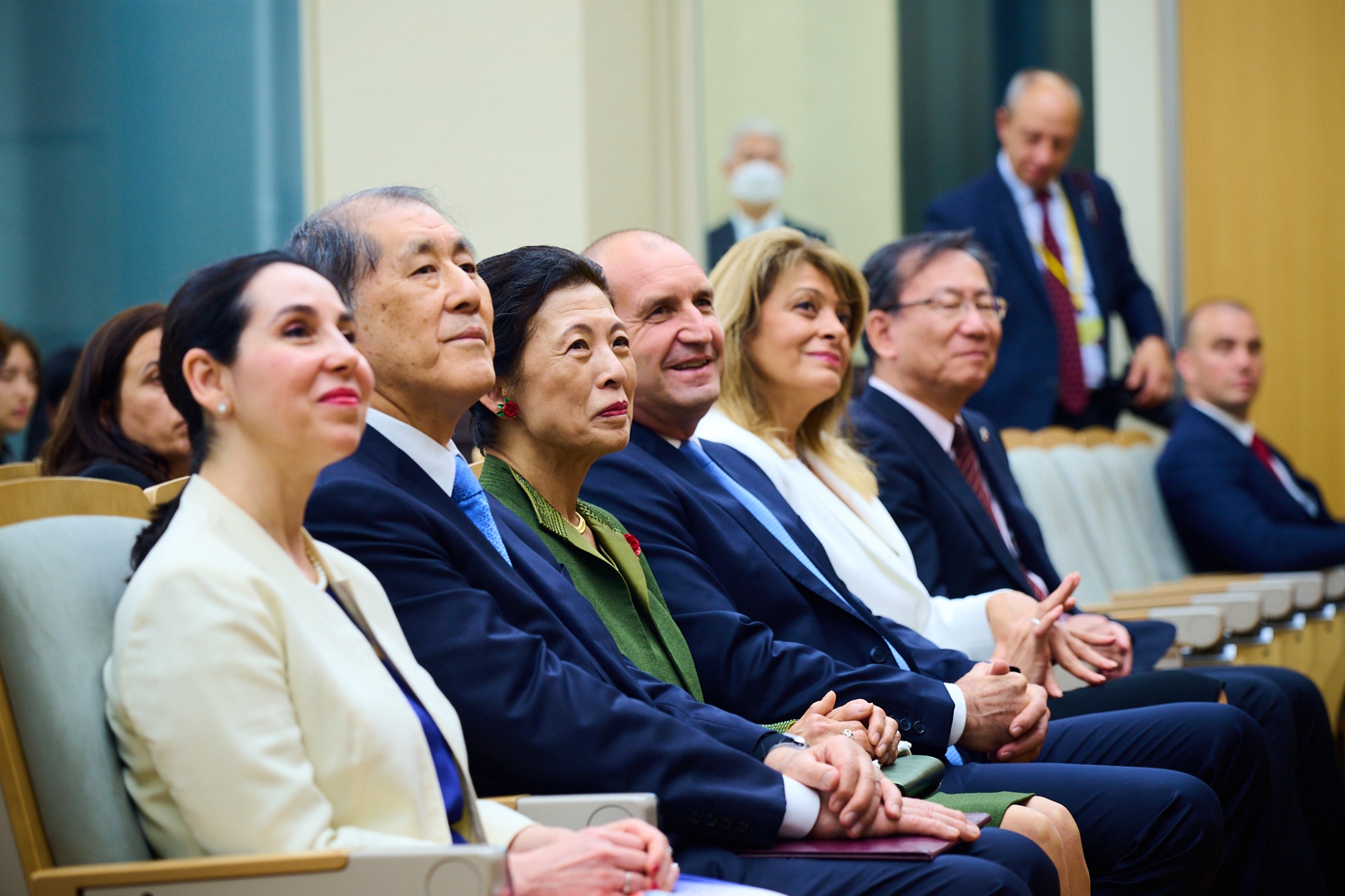The Bulgarian President’s Lecture at Waseda University: Student Exchanges for Future Relations Between Japan and Bulgaria
Thu, Jun 12, 2025-
Tags
On the occasion of his official visit to Japan, His Excellency President Rumen Radev of the Republic of Bulgaria delivered a special lecture on the bilateral relations between Japan and Bulgaria at Waseda University on Monday, May 19th, 2025. The special lecture was held in the Okuma Small Auditorium and attended by distinguish guests; Desislava Radeva, spouse of the President of Bulgaria, Her Imperial Highness Princess Takamado, Bulgarian Ambassador to Japan Marieta Arabadjieva, Japan’s Ambassador to Bulgaria Hisashi Michigami, and delegates from the Republic of Bulgaria, including the media, as well as around 80 students from Waseda University. This event was moderated by Professor Masahiko Gemma, Vice President for International Affairs, Waseda University.

From left: Ambassador Arabadjieva, Waseda University President Tanaka, Princess Takamado, President Radev, Mme Radeva, Ambassador Michigami
President of Waseda University Aiji Tanaka delivered the initial opening remarks. In his speech, President Tanaka emphasized the cooperation between Waseda University and Sofia University since the signing of Memorandum of Understanding (MoU) in 2002, including student and researcher exchanges. Her Imperial Highness Princess Takamado also delivered a speech to welcome the guests, which reiterated the long-lasting relations between Bulgaria and the Japanese Imperial Family since the visit of Prince Kuni Kuniyoshi in 1909. Her Imperial Highness also highlighted the social and cultural exchanges between people in both countries, particularly in language learning.
A Long History of the Like-Minded Economic Partners
Since the first official contact of Bulgaria and Japan in 1909, it has been 116 years since the commencement of exchanges between the two countries, 86 years since the first establishment of diplomatic relations, and 66 years since its restoration. Japan and Bulgarian relations have stood the test of time, and today the two countries are like-minded partners with shared values. This relationship was further highlighted by President Radev in his description of both Japan and Bulgaria as having common values through democracy, freedom, and the rule of law, as well as hardworking citizens and a spiritual connection which are important for strengthening cooperation.
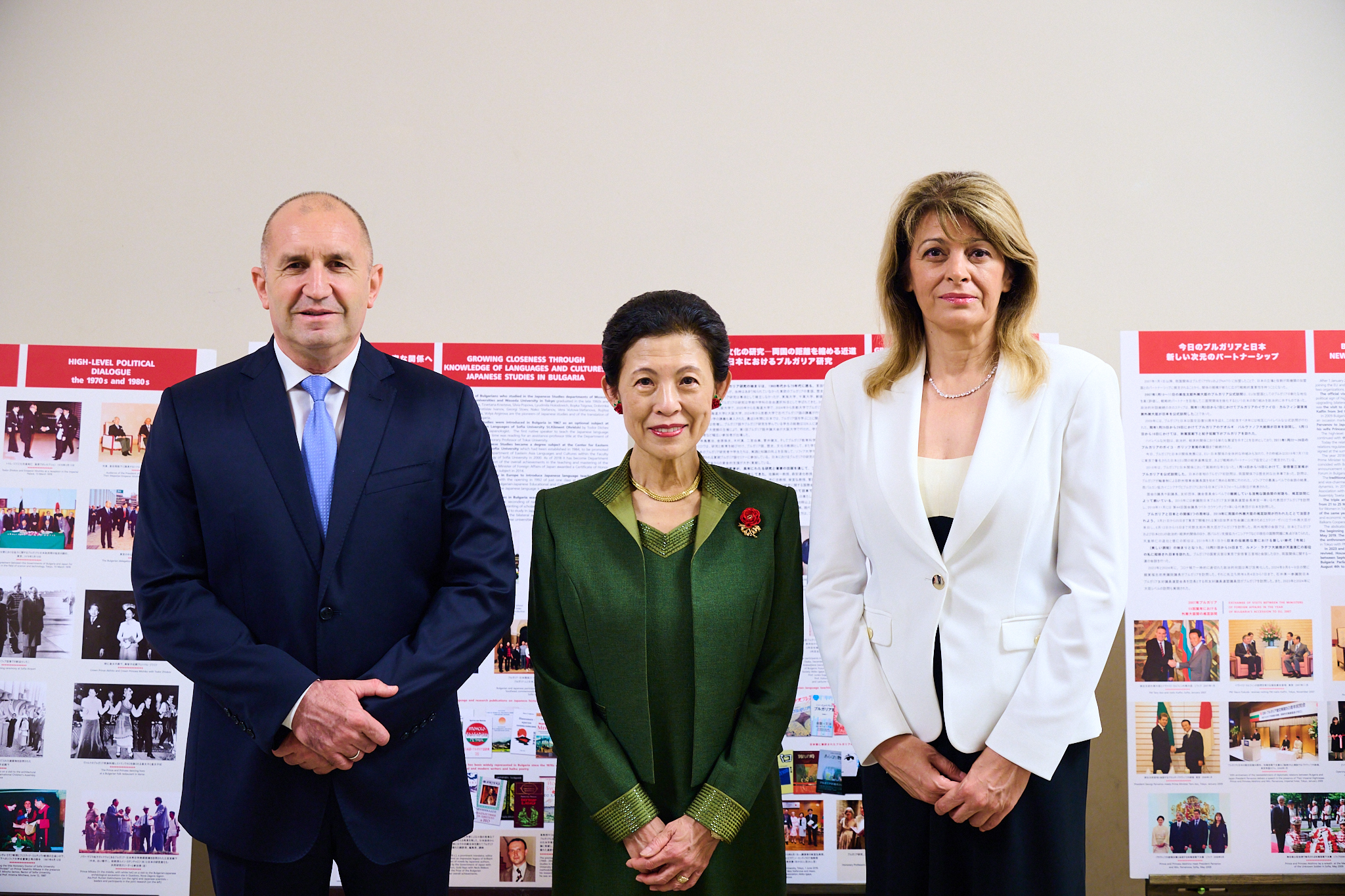
From left: President Radev, Princess Takamado, Mme Radeva standing in front of panels showcasing the history of bilateral relations between Japan and Bulgaria
President Radev emphasized that the world exposition Expo ‘70 held in Osaka back in 1970 was a historic moment for Japan-Bulgarian relations, which led to strong economic cooperation between both countries. During this expo, Bulgaria introduced their national culture and cuisine to visitors, including Bulgarian yogurt, which is now available in nearly every supermarket in Japan.
President Radev explained the opportunities that can be achieved together through economic cooperation between Japan and Bulgaria. Bulgaria can be the gate for Japan, and other countries, to the markets of eastern and central Europe. President Radev showcased fields of cooperation that can be explored further in the economic cooperation between Japan and Bulgaria. The President shared several examples of competitive advantages that could be gained by cooperating with Bulgarian businesses, ranging from the STEM (science, technology, engineering, and mathematics) field, artificial intelligence, space facilities, information and technology (IT), in addition to cooperation in the automotive sector, particularly in electric cars.
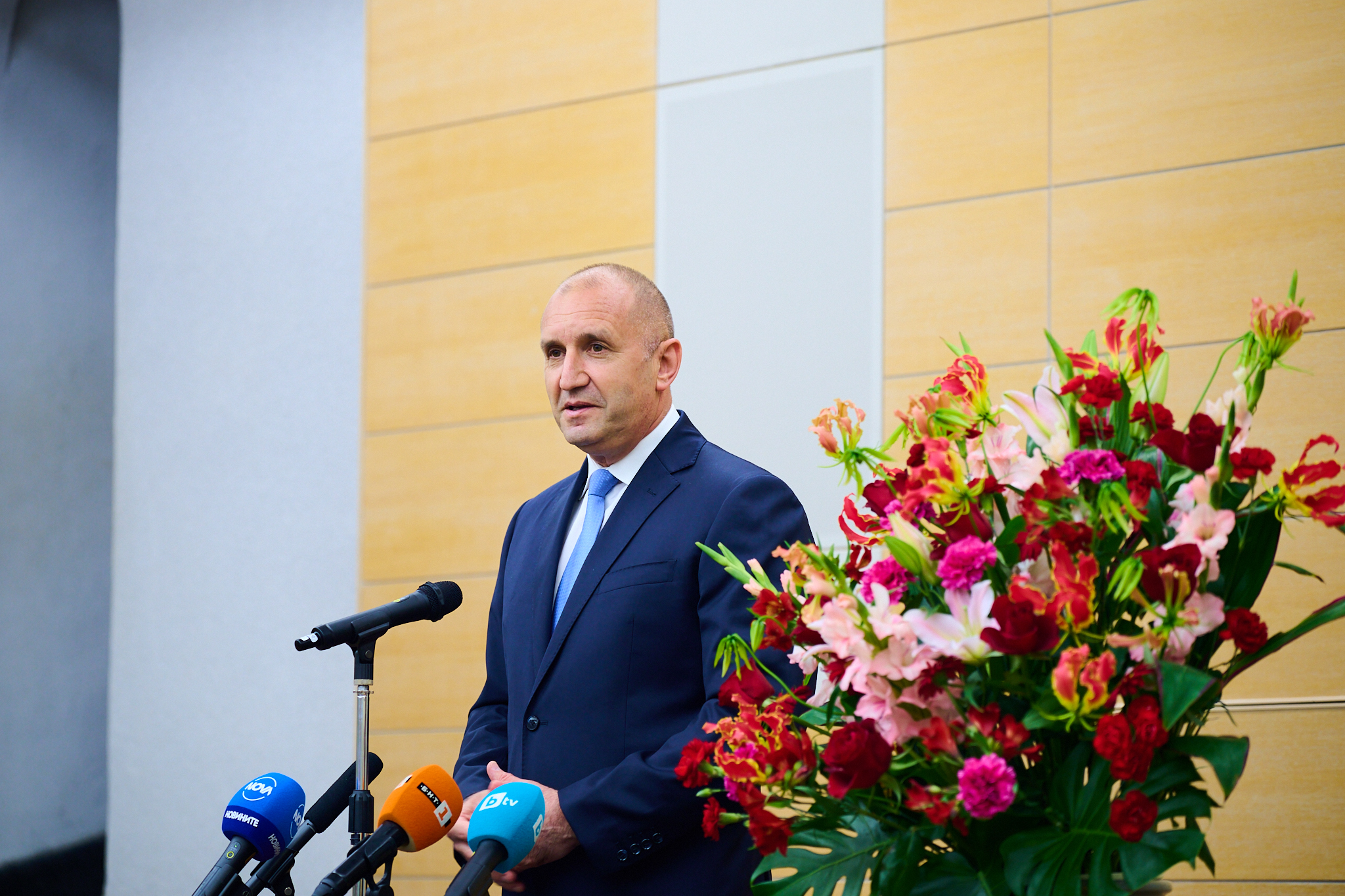
President Radev giving his lecture
The Importance of Dialogue with Students
In his lecture, President Radev explained the importance of fostering dialogues between politicians with young generations, particularly students, to strengthen critical thinking and find solutions to current challenges. He shared that feedback from young people is important to further deepen and expand bilateral relations between the two countries. In addition, President Radev highlighted that more than 1500 people in Bulgaria are studying the Japanese language, and likewise, six universities in Japan are also offering Bulgarian language courses. This illustrates how cultural exchanges and events between Japan and Bulgaria are supported not just by respective diplomatic representatives, but also by non-state actors, including universities and students.
Following the lecture, Waseda University students had the opportunity to have a dialogue with President Radev in the questions and answers session. During this session, five students from the audience were able to question the President on the relations of Japan and Bulgaria, as well as request President Radev’s opinion on current world issues.
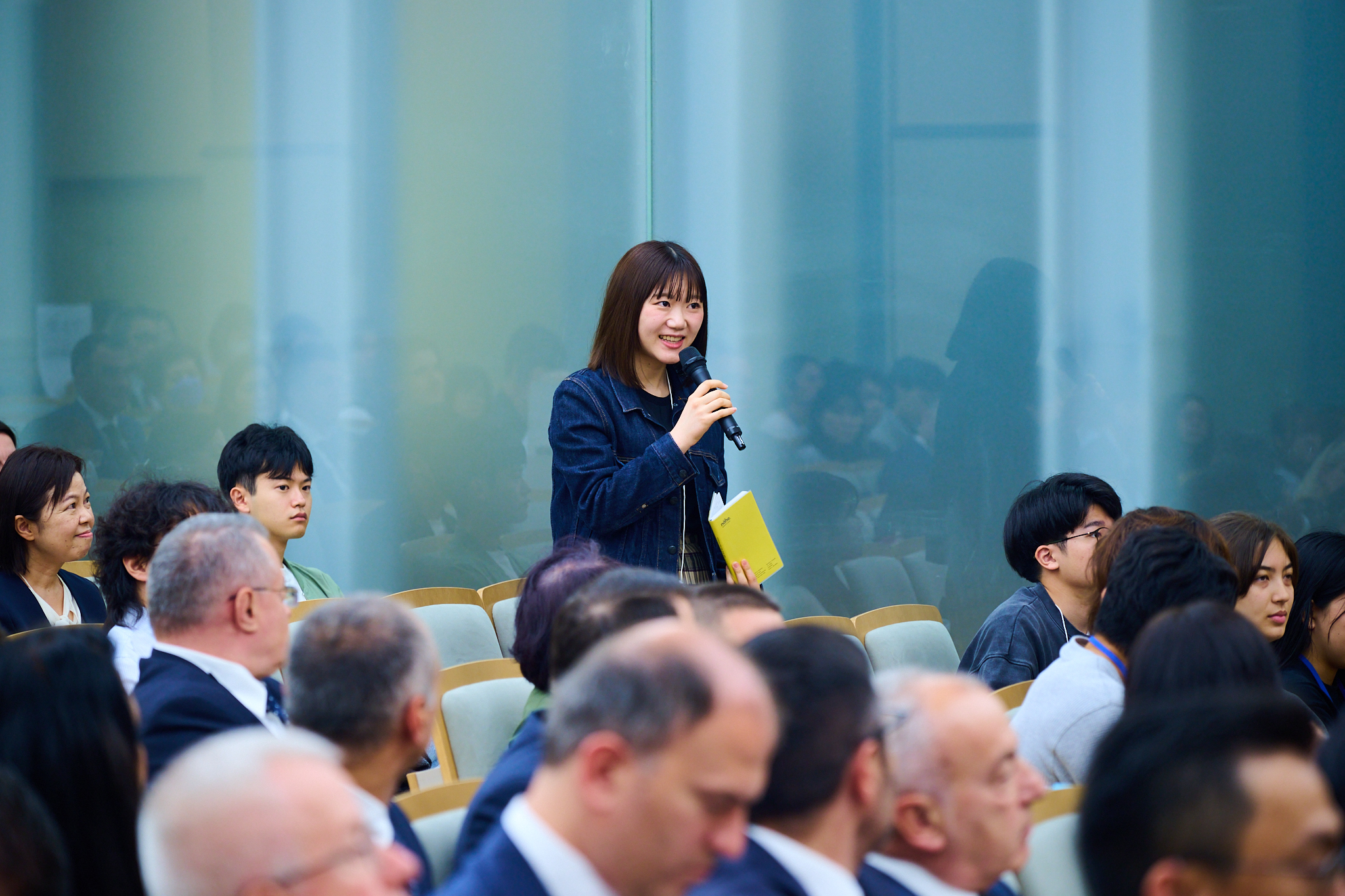
A student posing a question to the President
President Radev explained that the immigration of young people who go to study abroad but do not return can lead to a number of problems in Bulgaria. Therefore, in addition to providing better work opportunities and increasing the quality of life, the Bulgarian government is working to develop an educational and scientific infrastructure, so that students can become more globally competitive.
According to President Radev, student exchange is an important aspect of bilateral relations. He mentioned that some Japanese students are studying medicine in Bulgaria, and in addition to that, Japanese tourists who are visiting Sofia seem very interested with the Bulgarian culture and architecture—which makes him very glad. Therefore, exchanges can further solidify friendships and mutual understanding between the two nations.
On his vision for the future of Japan and Bulgaria relations, President Radev expects that further collaboration between Japan-Bulgaria can be achieved in the future. Particularly in the high technology sector, President Radev highlighted that many Japanese companies are interested in opening facilities in Bulgaria. He noted one of the biggest Japanese game companies is collaborating with one of Bulgaria’s leading software companies in the development of game software.
Before concluding the event, as a response to the students’ questions, President Radev explained Bulgaria’s position on the peace negotiations between Russia and Ukraine to the audience.
President of Bulgaria’s Visit to Japan
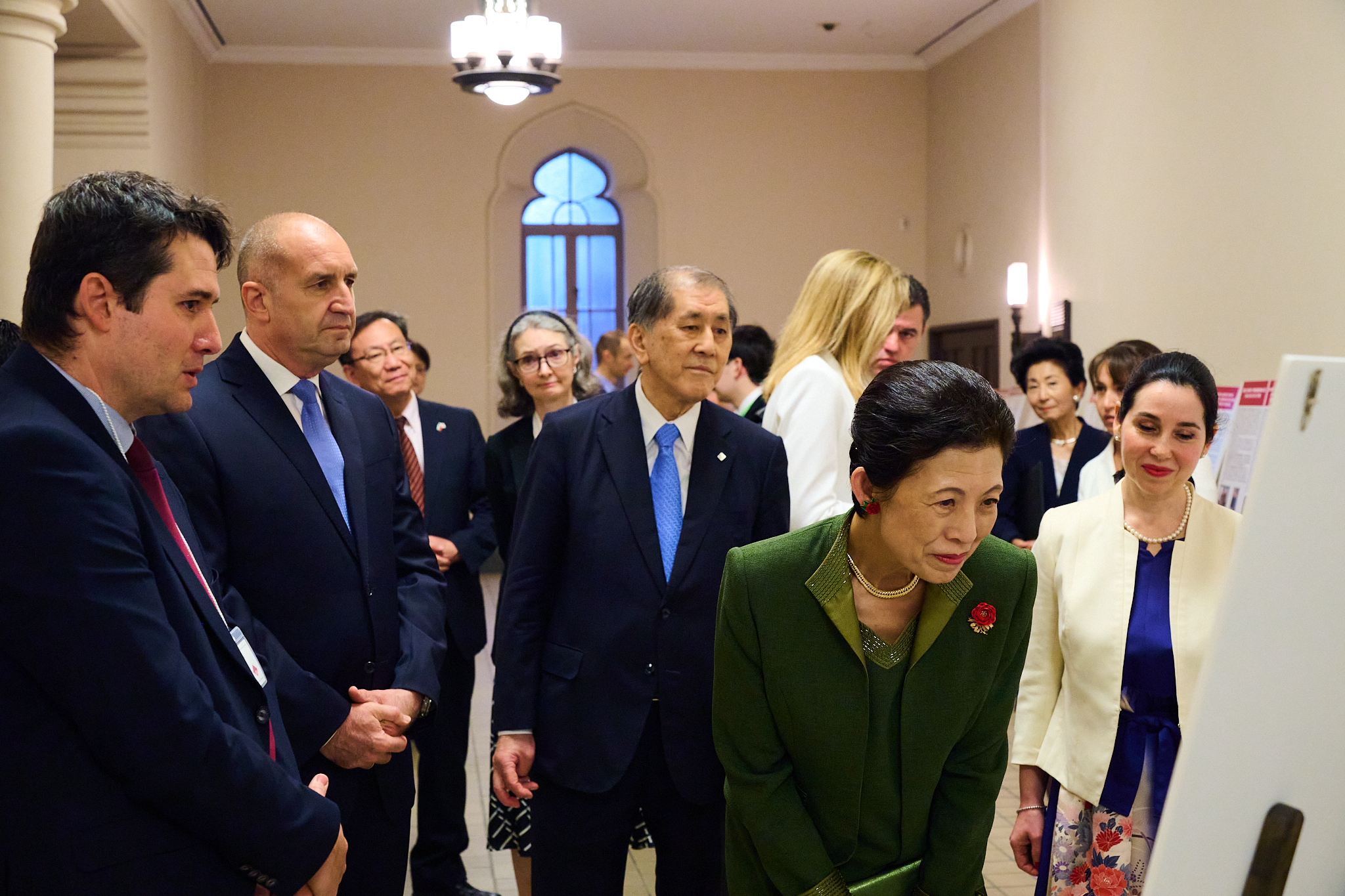
Princess Takamado viewing the exhibition alongside Ambassador Arabadjieva, Waseda University President Tanaka, and President Radev
Waseda University also hosted an exhibition of “Bulgaria-Japan: Politics, Diplomacy, Personalities and Events” in conjunction with this event. This exhibition was a retrospective of bilateral relations between the two countries displayed on a number of colorful panels outside of the auditorium. It was curated by a senior Bulgarian diplomat specialized in Japan-Bulgarian relations, Vera Stefanova, and Associate Professor Evgenii Kandilarov from Sofia University ‘St. Kliment Ohridski’, Bulgaria.
During the Bulgarian President’s official visit to Japan from May 18th to 21st, 2025, President Radev and his delegates visited the Bulgarian Pavillion at the World Expo 2025 in Osaka. In Tokyo, the President had a meeting with His Majesty Emperor Naruhito at the Imperial Palace and followed by the meeting with Prime Minister Shigeru Ishiba to sign a joint declaration to establish a strategic partnership between Japan and Bulgaria.
This article was written by the following Student Contributor:
Janita Jaya
Graduate School of Asia-Pacific Studies


